The ontology of a sunken garden
In praise of the spirit of moss, trees, wind and rain.
This wasn’t what I intended to publish these days, but as I stood by our kitchen window washing the dishes, covered in bubbles up to my wrists and basking in the warm, pleasant sunlight of Vernal Equinox that was amplified by the window glass, my eye caught a glimpse of something.
A leaf. One large, lone leaf, its dark brown colour standing out against the newly reborn greenery of the moss in our garden. It was lodged in between slender, dark green stalks of rushes that are slowly, but surely taking over the lawn. In that split second, the other article I was brewing in my mind had to be put away; as it happens by default ever since I returned to writing, new words started forming organically. These days sentences take shape suddenly, intuitively, propelled by seemingly small and random things. Seemingly — because there is no such thing as truly small and random; no such thing as too small to matter, no such thing as too small to be an important building block of a whole. As these words started crystallising, my thoughts examined the path this leaf must have taken to end up in this place. I left the house for a quick stroll in the garden, barefoot. The soil was cold and wet, the moisture increasing by the second with the chilling mizzle, stubbornly persistent as the rain always is in March in Ireland. As I walked through what was once green grass, my feet were sinking into the cold moss and its depth, well over my ankles, took me by surprise. When did it grow so long, thick and lush? The sound of all the water retained in this mossy carpet felt incredibly soothing, splashing when pushed by the weight of my feet; gurgling upwards from the depth of the Earth, hidden out of sight, yet bringing a primordial humm of Life to the surface.
Our garden is sinking. Ever since we moved in, year after year the garden has been steadily transforming, rewilding on a small scale. Long green blades of grass now aren't dominant anymore, only peeking through little knolls of moss that have overtaken everything, withholding more water in the soil and encouraging the growth of the rushes. Our garden is turning into a bog — or shall I say returning, for moorland was the primeval cover of most of Ireland's north; its natural state in the face of harsh, wet northern climate on the edge of the Atlantic ocean. You don't have to look hard to see the bog everywhere in the north, uplands and lowlands; many a farmer complaining of the low quality of grass in his soaked sheep fields brimming with rushes. Grazing fields like these surround our house, with a small stream separating them from our sunken garden. Modern human agriculture and infrastructure are relentless and put claim on all the land, as if the land exists for the sole purpose of being subordinate to humans, yet it’s always Nature that eventually overtakes and wins, as our sunken garden can testify. In our surrendered garden, the moss has even overtaken an old, plastic hanging basket where I left late summer strawberries for the birds to feast on in winter.
I picked up the leafy garden guest I’ve spotted through the kitchen window and I realised it was a beech leaf. A quick look around confirmed what I instinctively suspected — there was no beech tree or beech hedge in our close vicinity. We're blessed with an abundance of native hawthorns, birch and gorse, but this decaying visitor must have travelled some distance to end up at our doorstep, over at least a couple of fields or maybe even many miles. Whatever the distance was, which is a question only Nature can answer anyway, it felt like a remarkable feat for this thin, fragile creation that was still largely intact, with only minor segments missing amidst its veins. I held the leaf in my hand, its slimy surface muttering a farewell to winter, and I wondered whether it had fallen off its branch some time ago, surviving the winter months tossing and turning in the wind, then insulated by snow and preserved by layer upon layer of soaked leaves. Perhaps one of our signature north coast gales overturned a pile of leaves and there was our garden visitor, up in the air once again, moving more freely than it ever had while it was attached to the mother tree that pumped Life into its veins? Or maybe, as the beech is known for, it spent the entire winter defying the season's countless fierce storms, resisting the inevitable, clinging onto its mother branch. Month after month it refused to let go, last man standing against all odds — only to finally succumb at the very end of winter because such is its fate, as written onto the pages of the book of Life many eons ago, when the Earth was young and the trees and their leaves were but an idea in the consciousness of the Creation. As it once sprung into existence, so the leaf must return to the soil, nourishing it to allow for the birth of a new leaf. Creation and destruction are inevitable, unrelenting, necessary; one cannot exist without the other.
Acknowledging the sustenance the leaf of a beech provides to this sacred soil, at the same time I have to acknowledge that the beech isn't this soil's original source of sustenance. Beech trees are so domiciled nowadays that many people don't know they're not a native Irish tree. Beech was brought here by English settlers in the 16th century and planted onto their colonial estates for aesthetic reasons; spreading more rapidly since the 18th century when it became favoured for hedging. While the beech isn’t suppressing native species with the adamance of the invasive rhododendrons or cherry laurels, it's still a contributor to colonial transformation of the land. What was once a wild green island with around 80% forest cover turned into empty fields and pastures under Norman and British rule, culminating in just 1% of the island being covered in woodland by 1925.1
Sadly, reforestation in the late 20th century hasn't commenced because of some noble notion of restoring Ireland's natural environment or rekindling the fractured sense of belonging to the land. It was done with the timber industry in mind. Today, around 11% of Ireland is forested, 9% out of that belonging to commercial, fast growing conifers like the Sitka spruce; a disaster to the native biosphere. Only 2% of Ireland is covered by native broadleaf trees. Colonialism in Ireland stripped the land off its very essence and through that process, changes inevitably happened not just on the land, but in people's minds and souls, reverence for nature replaced with reverence for economic gains. I could write about this aspect of colonialism for many hours, and I surely will in the future, but for now I'll just tell you that my heart sings when I touch a leaf of a rowan tree in a way it never could when I see a rhododendron flower.
The sludgy old beech leaf was warming up in contact with my skin as my eyes wandered around the garden, onto small twigs that became hosts for fungi of all sorts, safely tucked underneath the moss. Somewhere along the way, in the short span of time our species spent on this old planet placed in an Ancient Universe, a span that feels like a single, barely visible speckle of sand in the vortex of time; somewhere along that journey we’ve lost ourselves. We've lost the feeling of awe when we witness tiny, sparkling drops of rain slowly moving down the miniscule leaves of moss. We’ve lost the feeling of reverence when the water that was going down the stem touches the soil and soaks in, incomprehensibly small molecules dispersing through the mycorrhizal network of Life. We've lost the ability to recognise the Creation. We've separated the internal from the external, and in doing so we've separated our being into scattered fragments.
There have always been those of us who haven't lost this innate way of Being. The world — the society that proudly brandished itself a civilisation; built on the premises of ownership, entitlement, supremacy — made sure to beat Being out of our bones. At best, we humans are allowed some expression of Oneness with the Creation when we're young. We might even receive a couple of warm words and laughs when we’re toddlers playfully chasing bees in the flower bed or loudly expressing our love for foxes. Yet try expressing this same innocence as an older child or, God forbid, a teenager or young adult; try telling the world about the reflection of the Universe you see in a rocky outcrop by the river, or about the enchanting colours that can't be described with human words you've seen on the back of a dragonfly. You won't be seen as cute anymore, instead you will be called a dreamer (and the implied meaning won't be positive in any way) or, if facing a person who underwent a complete soul-loss, direct insults will be thrown into your face. You're too old for such nonsense, your parents will yell and question your mental health, while a teacher will sulk and proclaim how you'll never amount to anything. To simply be, immersed into everything that is, isn't normative in our world; our world hates anything that is outside the norm. The manufactured norm requires your soul, sacrificed at the altar of productivity that is only seen through a prism of materialism. More, more, more, screams the High Priest at the altar, as the last remaining bits of your soul try to turn back towards worshiping the sun instead of worshiping the computer screen in your lifeless shared office. Eventually, the last remaining flames in your soul are extinguished and their embers crushed to dust. As you walk towards the station to catch the overcrowded bus that will take you to your workplace, you pass by a small flock of pigeons and they don't invoke any feeling in you; no pondering about the rainbow feathers glimmering on their chests, only a sneering remark, “dirty city rats”, as you sip an oversweetened takeaway coffee from a single use plastic cup.
The moss however cares nothing for your newfound place in this soulless machinery. The moss just is. The moss will carry on without you, and so will the trees, the wind and the rain. They will carry on flowing in the cycle of the Natural Order, taking their rightful role in their niche over and over again, while you’re being shoved into artificially created boxes designed to isolate you from your natural place in the cycle. And when you pop into a large supermarket after work, buying your standard premade dinner in a plastic pot that needs to be reheated in the microwave (five and a half minutes at 900 W; remove the plastic film halfways and stir well!), you will pass by the newspaper and magazine stand. For a moment, your eyes will stop at popular psychology headlines in tacky women’s magazines, “top life coach says we should go outdoors and enjoy nature more”, “how to find time for nature”, “research suggests spending 10 minutes a day looking at green trees helps our mental health”. Dozens of headlines will perpetuate the idea of humans being separated from Nature and above it. And you will scoff and proceed with your shopping, completely detached from the reality of being Nature.
This is what we have lost along our technocratic journey, the natural way of Being that needs no labels, names and temples that we seek to build in our modern world, something that has been innate to all indigenous people since time immemorial. I could dive into examining the deep, ancient roots of this loss, I could talk about how it slowly trickled into human consciousness with the first organised agriculture our species has pursued and how it blossomed with the colonising religions that introduced the divide between the sacred and the mundane and the unnatural linearity of monotheism into the hearts of beings who aren't made for linearity, but perpetuity. As I bear witness to yet another child dying of starvation in Gaza in the name of colonial supremacy, yet another woman's body desecrated in the Congo in the name of exploiting and treating the Earth as disposable, yet another rainforest burning to the ground in the Amazon in the name of economic progress, I fear the collective loss of our souls is so profound that the wound of loss resulted in so many fragments, it's impossible to mend it now. Yet we all must keep going, resisting the soul loss in every possible way, denouncing the colonial narrative of linear progress and ownership of Nature, taking our natural place in the great web of Life. Relearning and reclaiming how to Be, because we owe it to every single being that is, was and will be on this planet.
As I come back into my kitchen, the heavens are opening and a heavy shower is drenching the moss. My two little ones nibble on a jam sandwich and argue over impromptu toys in the form of cardboard boxes and toilet roll tubes. I hope I will manage to raise them to recognise animal tracks and names of trees, not the names of brands of things we don't need. The rain stops after a few minutes and the thundering sound of heavy drops hitting the windowsill is replaced with bird song. A small robin lands on the fence right in front of our window, the feathers on his orange chest flickering up and down in the wind. In his small, shiny black eye, I see the Universe.
https://www.tcd.ie/news_events/articles/2023/ireland-has-lost-almost-all-of-its-native-forests--heres-how-to-bring-them-back



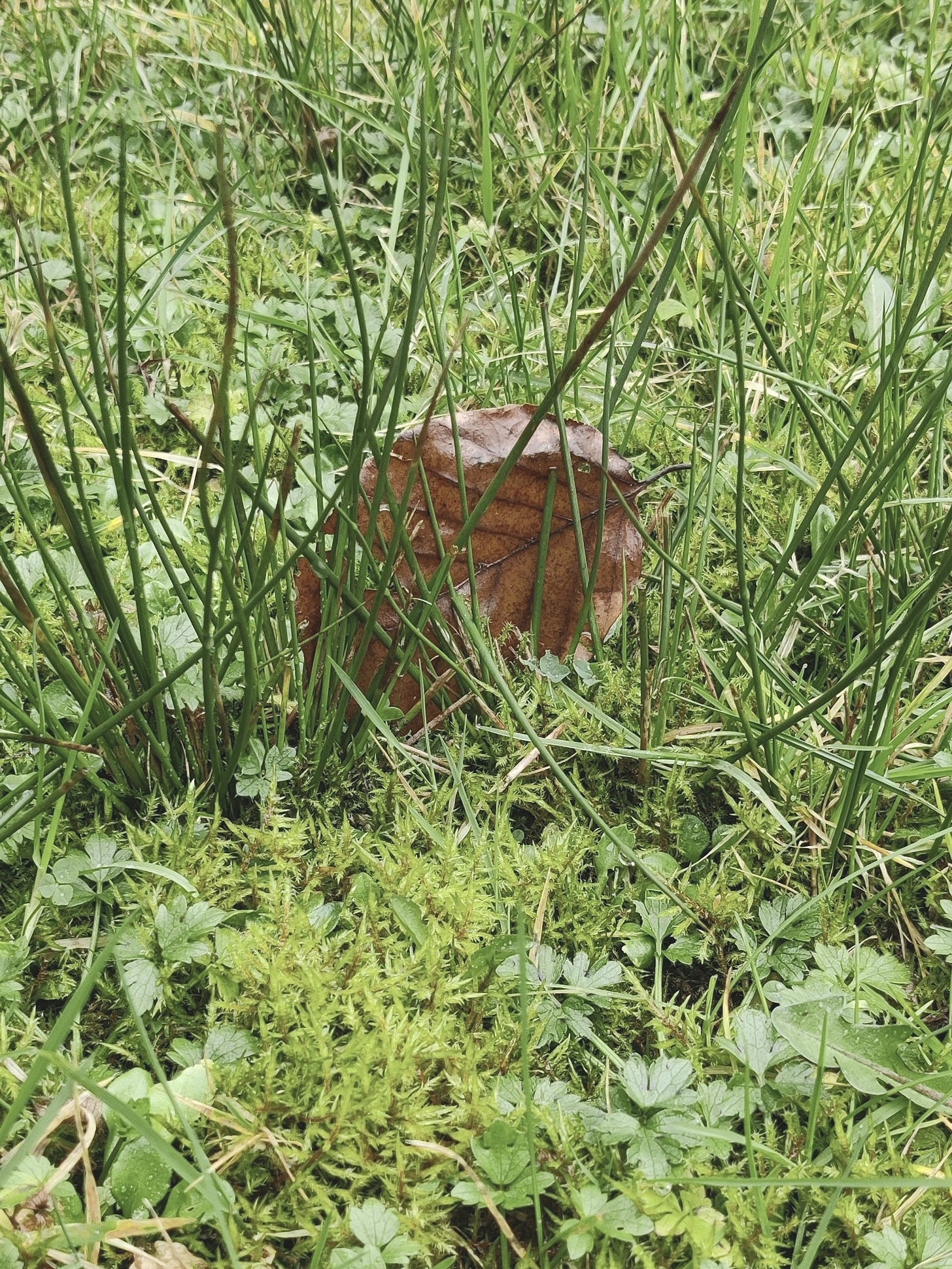
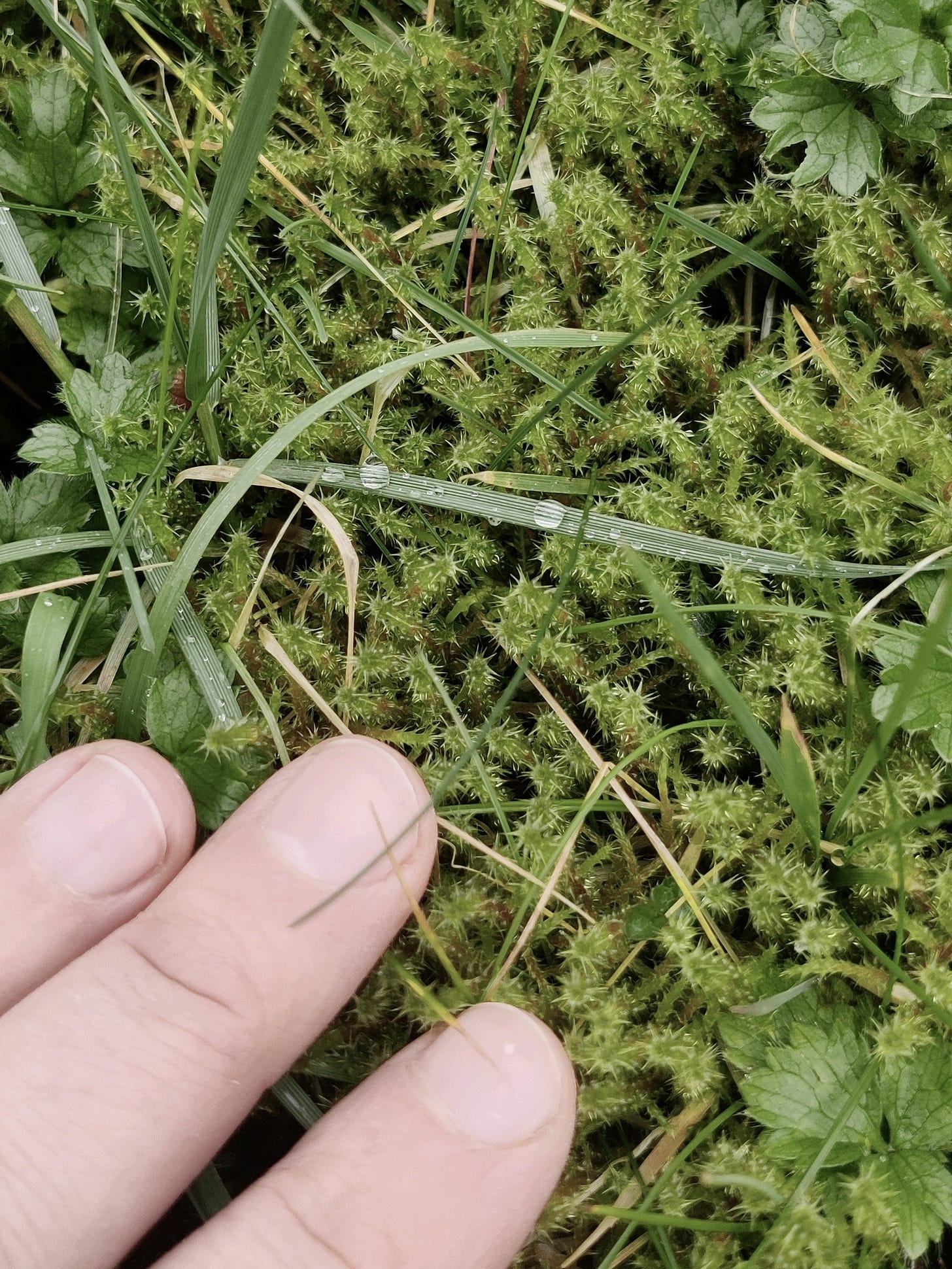
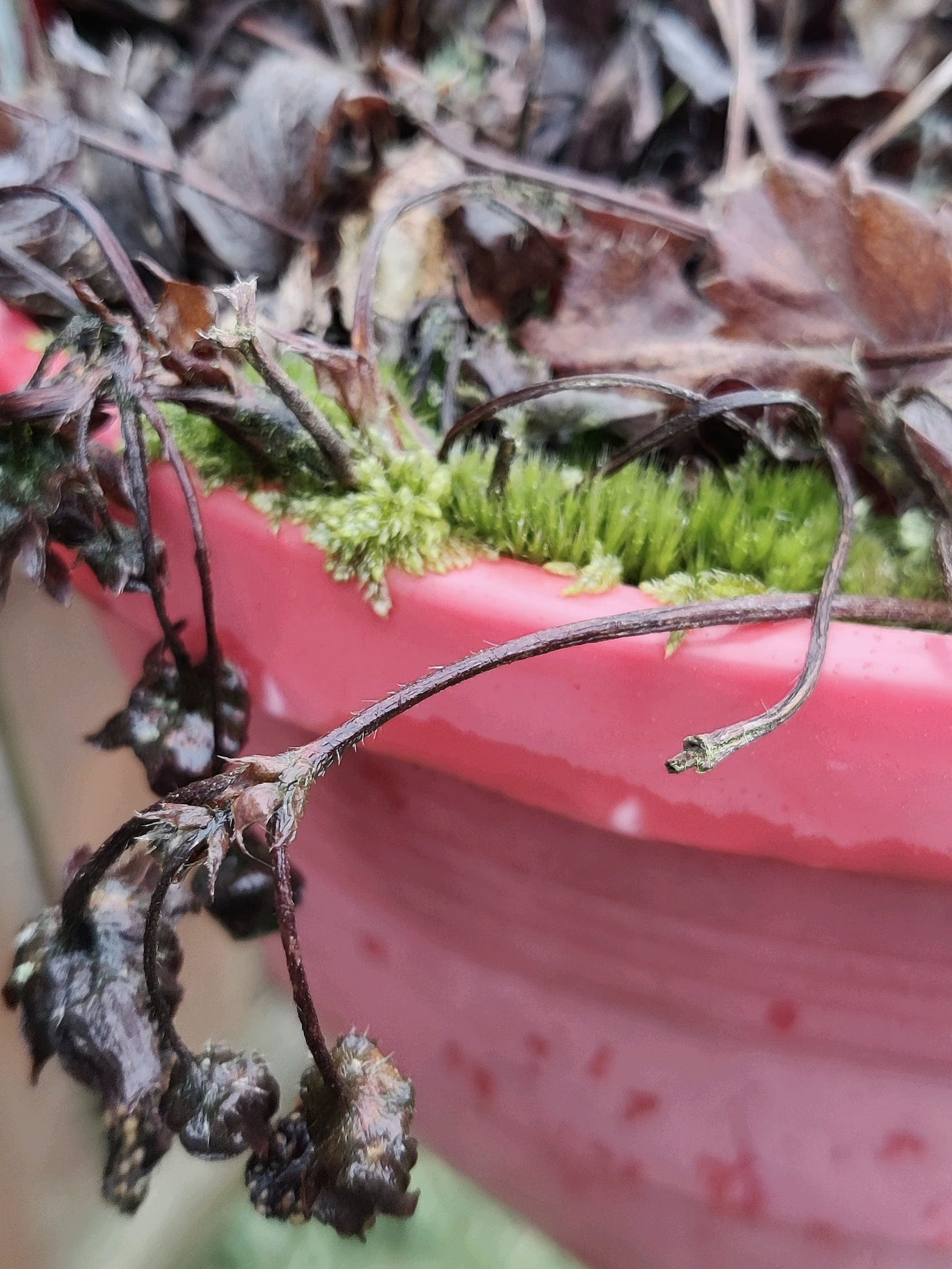
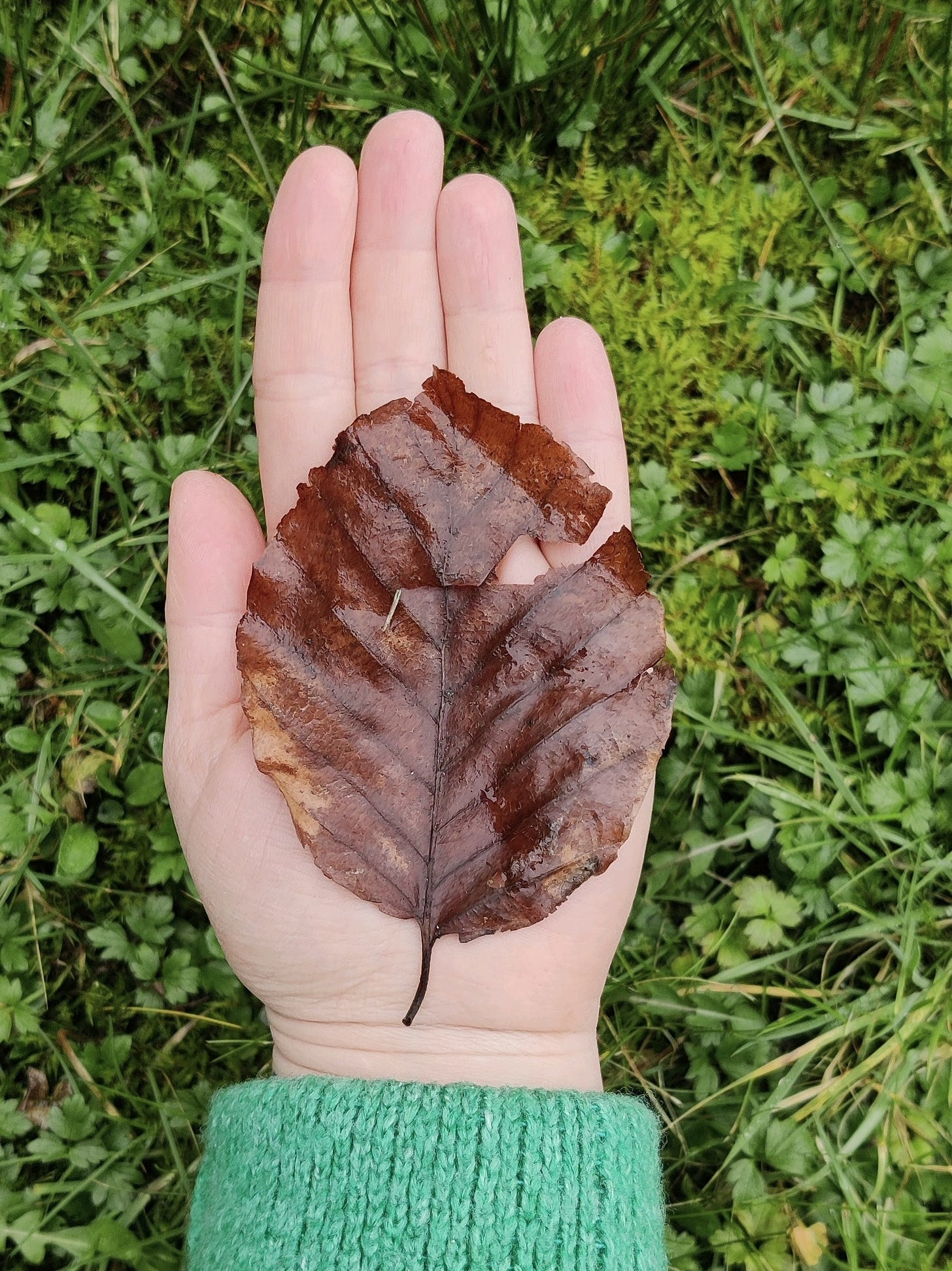
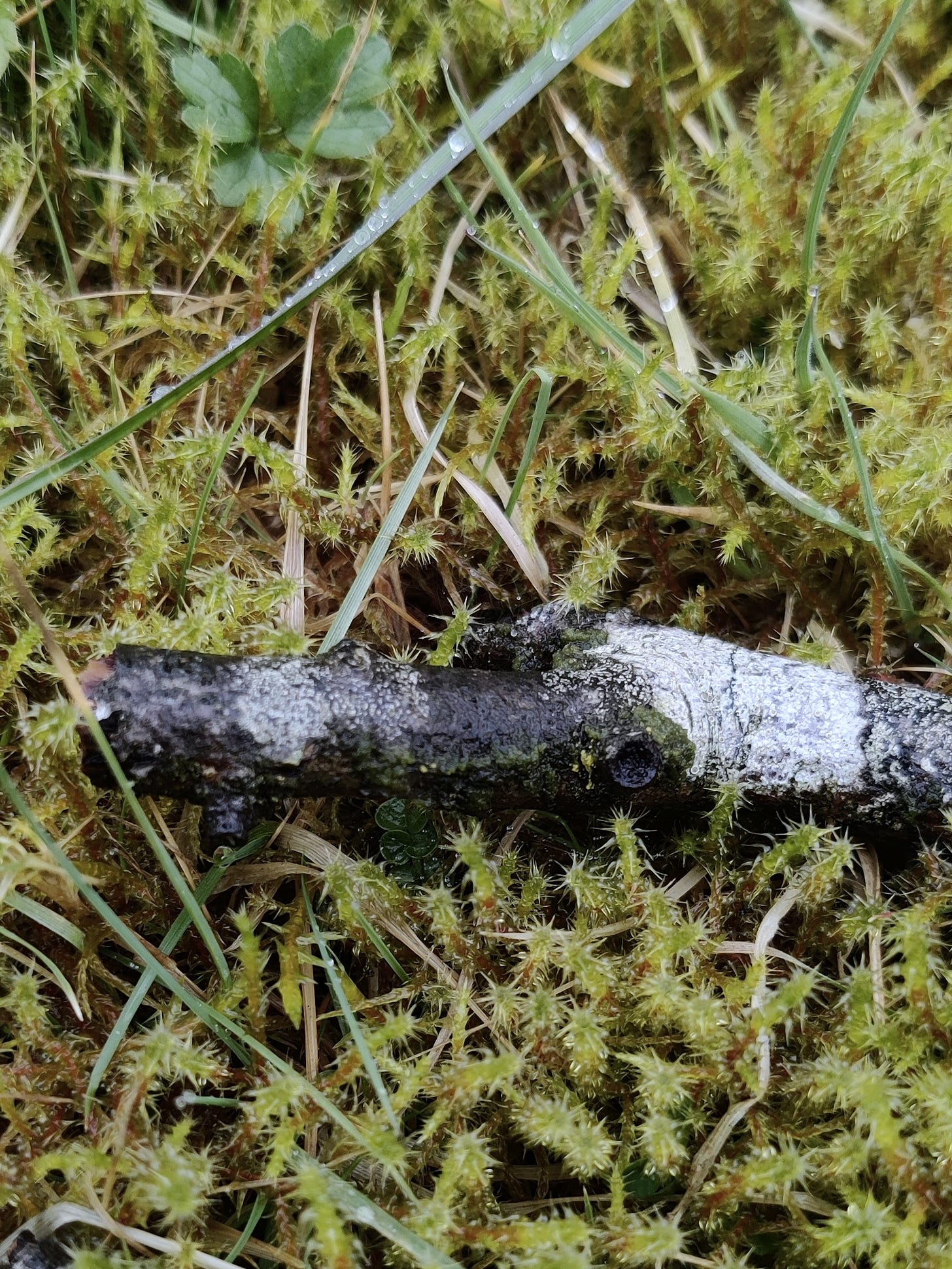
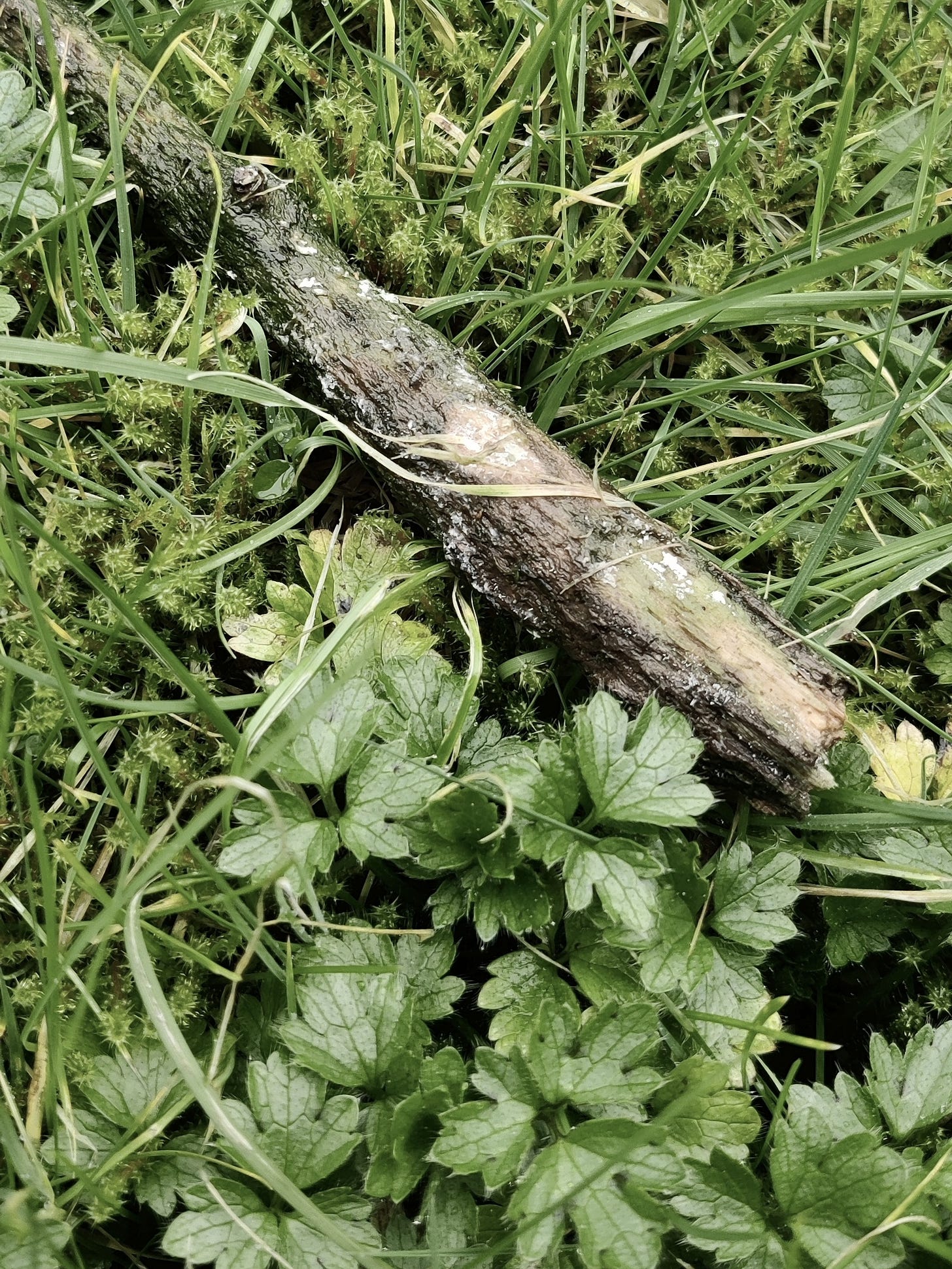
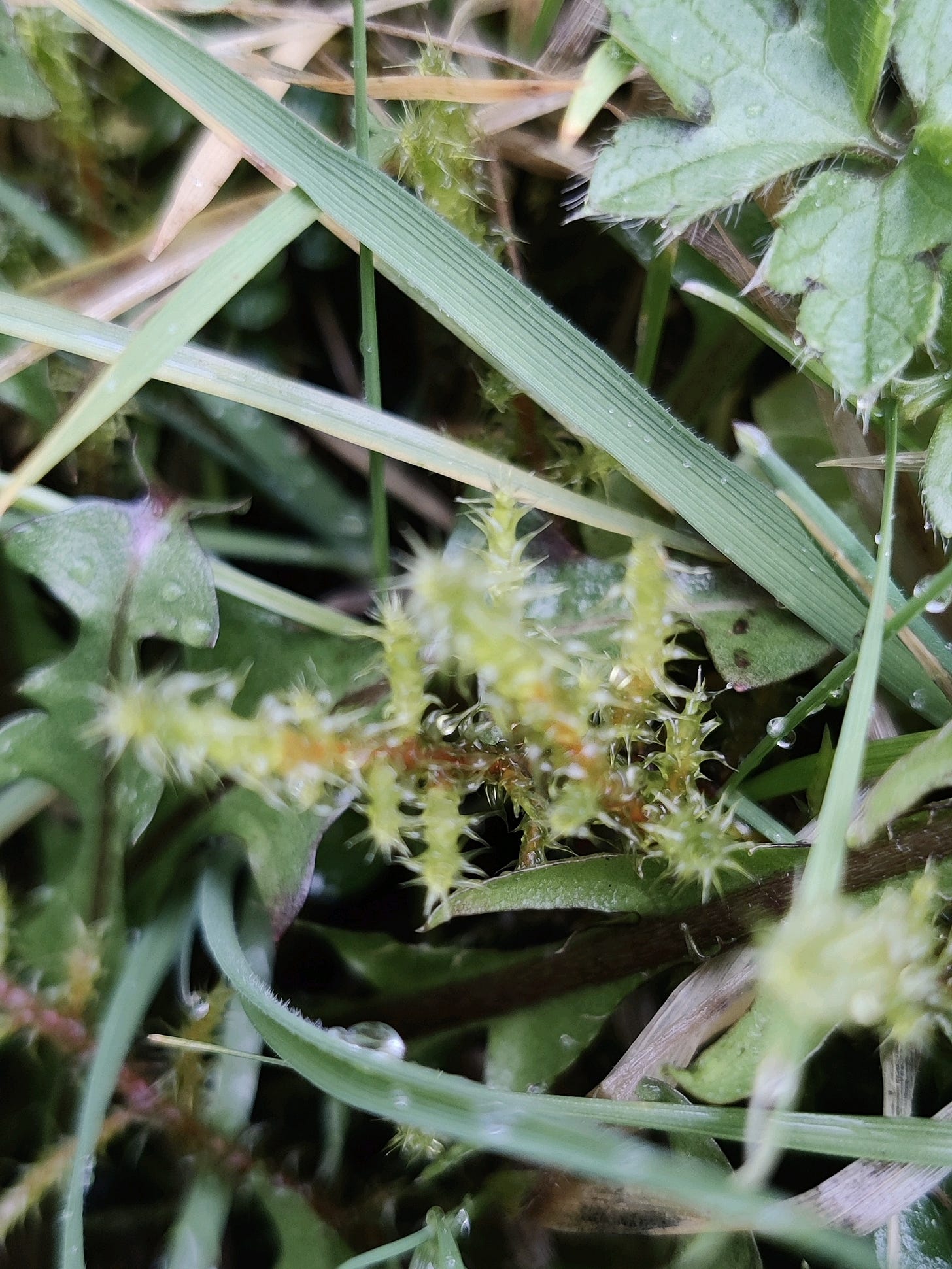

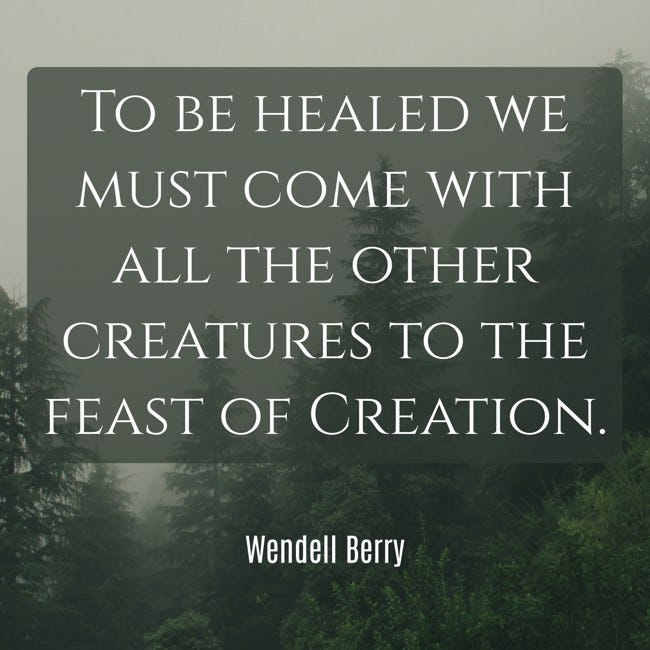
Perfect.
You transported me right into your backyard.
It is always heartening to know there is other out there who are still dreamers (and I will use that in the best sense of the world) I feel so lucky to have been able to keep my childlike wonder. But it is exhausting to walk through a world surrounded from people who are so disconnected that they look at you like you’re the strange one.
Thank you for the piece. It was the perfect start to my day.